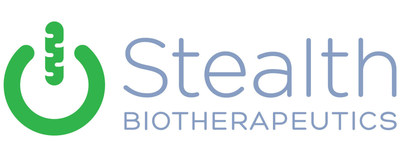Stealth BioTherapeutics Announces Poster Presentation at 2020 Annual NEALS Meeting
Stealth BioTherapeutics (Nasdaq: MITO) announced its participation in the 2020 Annual NEALS Meeting, showcasing a poster awarded the UMN/PLS Poster Award. The poster presents data on SBT-272, highlighting its protective effects on upper motor neurons against TDP43 pathology, relevant to neurodegenerative diseases like ALS and Alzheimer's. SBT-272 is a mitochondrial-targeted peptidomimetic that enhances ATP production and reduces reactive oxygen species, demonstrating potential for treating various neurodegenerative conditions. Continued research on SBT-272 is planned following positive preclinical results.
- SBT-272 shows protective effects on upper motor neurons and potential in treating neurodegenerative diseases.
- Awarded the UMN/PLS Poster Award at the 2020 Annual NEALS Meeting, indicating recognition in the scientific community.
- Preclinical studies demonstrate SBT-272 increases ATP production and reduces reactive oxygen species.
- None.
BOSTON, Sept. 23, 2020 /PRNewswire/ -- Stealth BioTherapeutics (Nasdaq: MITO), a clinical-stage biotechnology company focused on the discovery, development and commercialization of novel therapies for diseases involving mitochondrial dysfunction, today announced that the company will present an abstract in a poster session at the upcoming 2020 Annual Northeast Amyotrophic Lateral Sclerosis (NEALS) Meeting, which is being held online from September 30th to October 1st. The selected poster has been awarded the 2020 Annual NEALS Meeting UMN/PLS Poster Award.
The poster, entitled "The mitochondrial targeted peptidomimetic SBT-272 protects cortical spinal motor neurons from mutant TDP43 pathology," demonstrates that SBT-272 protects upper motor neurons from mutant TDP43 driven neurodegeneration. TDP43 pathology has been observed in multiple neurodegenerative diseases, including Amyotrophic Lateral Sclerosis (ALS), Frontotemporal Lobar Degeneration (FTLD), Lewy Body Dementia (LBD), Progressive Supranuclear Palsy (PSP), and Alzheimer's Disease, and is believed to play a role in neuronal cell death. The data from this study supports further investigation of SBT-272 for the treatment of these and other neurodegenerative diseases in which TDP43 pathology is thought to contribute to disease burden.
About SBT-272
SBT-272 is a novel peptidomimetic being developed for the treatment of neurodegenerative diseases involving mitochondrial dysfunction. SBT-272 has been shown to increase adenosine triphosphate (ATP) production and decrease levels of reactive oxygen species (ROS) in dysfunctional mitochondria in preclinical studies. SBT-272 demonstrates higher mitochondrial uptake and greater concentrations in the central nervous system relative to elamipretide, Stealth's first-in-class lead compound. Treatment with SBT-272 was associated with a dose-dependent delay in the onset of neurological disease, a reduction in systemic markers of neurodegeneration and prolonged lifespan in a mouse model of amyotrophic lateral sclerosis (ALS). In addition, SBT-272 treatment was associated with the preservation of dopaminergic neurons in the substantia nigra of a mouse model of mutant alpha-synuclein driven neurodegeneration. Alpha-synucleinopathy is a common pathological feature of several neurodegenerative diseases, including Parkinson's Disease, Multiple Systems Atrophy and Alzheimer's Disease. Further preclinical evaluation of SBT-272 in the context of protein misfolding diseases which lead to mitochondrial dysfunction and subsequent neurodegeneration is on-going.
About Stealth
We are a clinical-stage biotechnology company focused on the discovery, development and commercialization of novel therapies for diseases involving mitochondrial dysfunction. Mitochondria, found in nearly every cell in the body, are the body's main source of energy production and are critical for normal organ function. Dysfunctional mitochondria characterize a number of rare genetic diseases and are involved in many common age-related diseases, typically involving organ systems with high energy demands such as the heart, the eye, and the brain. We believe our lead product candidate, elamipretide, has the potential to treat both rare metabolic cardiomyopathies, such as Barth, Duchenne and Becker muscular dystrophies and Friedreich's ataxia, rare mitochondrial diseases entailing nuclear DNA mutations, such as POLG-related disorders, as well as ophthalmic diseases entailing mitochondrial dysfunction, such as dry age-related macular degeneration and Leber's hereditary optic neuropathy. We are evaluating our second-generation clinical stage candidate, SBT-272, for rare neurodegenerative disease indications following promising preclinical data in amyotrophic lateral sclerosis, or ALS. We have optimized our discovery platform to identify novel mitochondria-targeted compounds, including SBT-259, the SBT-550 series of compounds, and other compounds which may be nominated as therapeutic product candidates or utilized as scaffolds to deliver other compounds to mitochondria.
Forward-Looking Statements
This press release contains forward-looking statements within the meaning of The Private Securities Litigation Reform Act of 1995. Such forward-looking statements include those regarding Stealth BioTherapeutics' plans, strategies and expectations for its preclinical and clinical advancement of its drug development programs, including its ongoing clinical trials of elamipretide and SBT-272; its plans for the potential submission of an NDA; the potential benefits of Stealth BioTherapeutics' product candidates; its key milestones for 2020 and 2021; its plans regarding future data presentations; and its financial guidance regarding the period in which it will have capital available to fund its operations. Statements that are not historical facts, including statements about Stealth BioTherapeutics' beliefs, plans and expectations, are forward-looking statements. The words "anticipate," "expect," "hope," "plan," "potential," "possible," "will," "believe," "estimate," "intend," "may," "predict," "project," "would" and similar expressions are intended to identify forward-looking statements, although not all forward-looking statements contain these identifying words. Stealth BioTherapeutics may not actually achieve the plans, intentions or expectations disclosed in these forward-looking statements, and you should not place undue reliance on these forward-looking statements. Actual results or events could differ materially from the plans, intentions and expectations disclosed in the forward-looking statements as a result of known and unknown risks, uncertainties and other important factors, including: Stealth BioTherapeutics' ability to obtain additional funding and to continue as a going concern; the impact of the COVID-19 pandemic; the ability to successfully demonstrate the efficacy and safety of Stealth BioTherapeutics' product candidates and future product candidates; the preclinical and clinical results for Stealth BioTherapeutics' product candidates, which may not support further development and marketing approval; the potential advantages of Stealth BioTherapeutics' product candidates; the content and timing of decisions made by the U.S. FDA, the EMA or other regulatory authorities, investigational review boards at clinical trial sites and publication review bodies, which may affect the initiation, timing and progress of preclinical studies and clinical trials of Stealth BioTherapeutics product candidates; Stealth BioTherapeutics' ability to obtain and maintain requisite regulatory approvals and to enroll patients in its planned clinical trials; unplanned cash requirements and expenditures; competitive factors; Stealth BioTherapeutics' ability to obtain, maintain and enforce patent and other intellectual property protection for any product candidates it is developing; and general economic and market conditions. These and other risks are described in greater detail under the caption "Risk Factors" included in the Stealth BioTherapeutics' most recent Annual Report on Form 20-F filed with the Securities and Exchange Commission ("SEC"), as well as in any future filings with the SEC. Forward-looking statements represent management's current expectations and are inherently uncertain. Except as required by law, Stealth BioTherapeutics does not undertake any obligation to update forward-looking statements made by us to reflect subsequent events or circumstances.
Investor Relations
Stern Investor Relations
Lauren Stival, 212-362-1200
IR@StealthBT.com
![]() View original content to download multimedia:http://www.prnewswire.com/news-releases/stealth-biotherapeutics-announces-poster-presentation-at-2020-annual-neals-meeting-301137022.html
View original content to download multimedia:http://www.prnewswire.com/news-releases/stealth-biotherapeutics-announces-poster-presentation-at-2020-annual-neals-meeting-301137022.html
SOURCE Stealth BioTherapeutics Inc.
FAQ
What did Stealth BioTherapeutics present at the 2020 Annual NEALS Meeting?
What is SBT-272?
What recognition did Stealth BioTherapeutics receive for their presentation?
What diseases are associated with TDP43 pathology?








